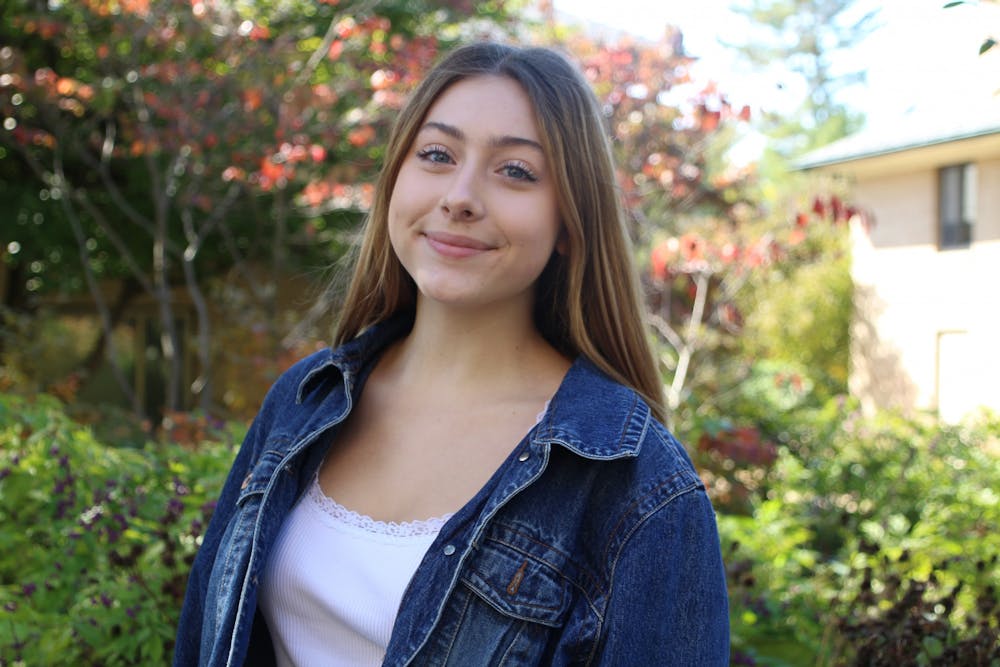Editor's note: This story contains references to sexual assault.
In the months following the disturbing break-in and alleged sexual assault in Leonard Hall, student organizers have continued their robust efforts to reassess how American University can prevent sexual violence on campus. The Community Working Group on Preventing and Responding to Sexual Harassment and Violence, established by President Sylvia Burwell and the AU administration, is designed as a space for roundtable dialogue with students, faculty, sexual assault prevention organizations, the AU Police Department, and others regarding sexual misconduct on campus. Members of the Office of Equity and Title IX have noticeably been absent at each of the four meetings. However, in its infrequent meetings thus far, it continues to have a disproportionate makeup between students and faculty, with significantly more faculty and staff members than students in attendance. Student advocates and AU’s chapter of It’s On Us, an organization dedicated to sexual assault prevention and education, have recognized this and have taken it upon themselves to ensure that more students are heard with a people’s working group.
The Community Working Group is a step in the right direction. It is a clear effort from AU to hear concerns and relay recommendations for solutions to senior leadership. Unfortunately, the low student turnout greatly taints the quality of the work being done. Lillian Frame, a senior at AU and student organizer and survivor advocate, told me that “there are a max of seven students at the working group.”
There are a myriad of issues that may be causing this low turnout, the first being that students do not have the information accessible to them to be able to attend the working group. As I scoured my email, social media and the internet, I could not find any information for where or what dates and times the meetings are held, only a link to enter your email to demonstrate interest in the group. More than three weeks after emailing, I have yet to receive a response.
This presents a grave accessibility problem — students cannot attend a meeting when they do not know when it is happening. It perfectly illustrates where this issue, which is so important to students, ranks on the administration’s priority list. AU has a responsibility to properly inform students of the Community Working Group. Otherwise, the concept behind it is lost. While the outrage has simmered down since November, when the student-led walkout occurred, the work for organizers has not stopped, nor has the fear for students.
I attended the student-run people’s working group on Jan. 24, and I was met with a group of individuals who deeply cared about getting students’ voices heard by the administration and faculty. Students in attendance wrote responses to different questions like “what works for survivors on campus?” and “what does not work for survivors on campus?” The responses were vast and should be listened to and addressed through not just an email, but by action.
The people’s working group also wrote love letters to survivors in light of Valentine’s Day approaching. While communicating our concerns and demands is certainly vital in this ongoing fight, small gestures like these letters go a long way and are often overlooked. It’s On Us and the organizers of the event providing love letters to fellow survivors of sexual assault reminded me that in the midst of working to correct this problem at a systemic level, the personal level of this issue can be forgotten — especially when students are unrelentingly trying to communicate their demands to a distant administration. It also illustrates that while the Community Working Group’s purpose is to address systemic issues, they should also be making efforts like this to make personal connections with survivors.
As our community continues to navigate how we can stop sexual violence on campus, it is clear that if changes to the Community Working Group are not implemented, the solution lies in our hands. As students, we have the unique opportunity to organize as a collective, which Burwell and the rest of the AU faculty will have no choice but to listen to. It is evident that there are students and organizations at AU like It’s On Us who are in it for the long haul, not just when there is an immediate outcry in light of an incident. The protest held on Feb. 22 in response to the Community Working Group’s mere third meeting is a brazen example that students recognize this group is not doing enough. We must continue to join in efforts like these in addition to demanding the changes that we are entitled to, that survivors deserve and that students need to feel safe.
Alice Still is a freshman in the School of Public Affairs and an opinion columnist for The Eagle.This article was edited by Jelinda Montes, Alexis Bernstein and Nina Heller. Copy editing done by Isabelle Kravis, Leta Lattin, Natasha LaChac and Sarah Clayton.





